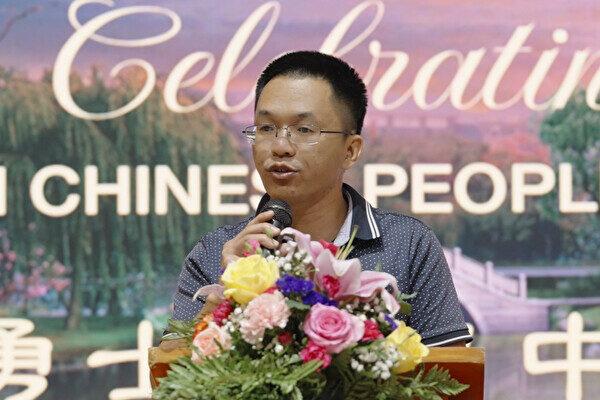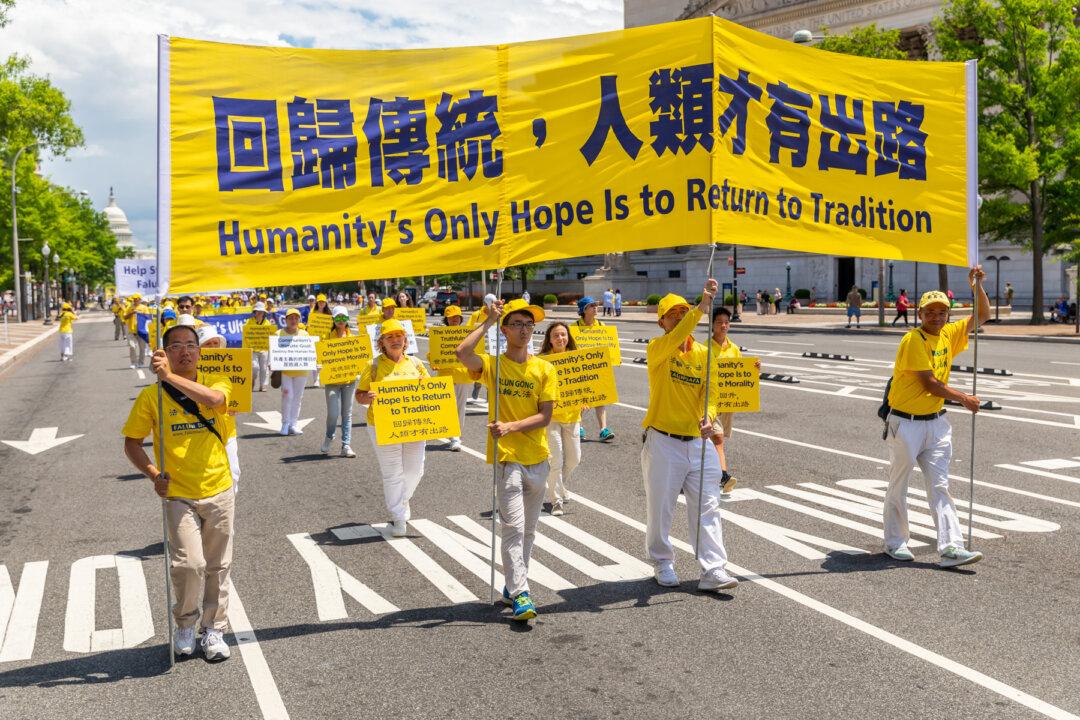For thousands of years, parents in China and elsewhere in the world have imparted to their children that kindness will be rewarded and evil punished.
That value, embedded in traditional Chinese culture, was believed to be imparted by the divine.
“But the Communist Party indoctrinated people with atheism. The spread of the ideology has brought disastrous consequences to China. Human conscience and morality were subverted.”

While Hu does not practice Falun Gong himself, Mr. Li’s essay resonated with the advocate, especially the idea that people should “stay good and kind” and “be spiritual and devout” even amidst adversity, he said.
“It’s exactly the same as the words passed down by the older generations,” Hu told The Epoch Times.
In the latest piece, Mr. Li stated, “if, in a trying setting like this, a person can still keep his thoughts virtuous; if he can hold his ground against the onslaught of modern values and views, and stick to traditional ones; and if he still believes in the divine in the face of assaults from the atheist and evolutionary camps, then that person will fulfill his purpose: to gain salvation and return to heaven.”
That message also enlightened Li Hengzhen, a Chinese researcher who recently relocated to the United States.
For a long time, the Chinese dissident has pondered why his home country didn’t change course to a more rational path when offered opportunities over the past decades.
“At first glance, it’s because society’s moral standards as a whole have declined. But on a deeper level, it’s the atheistic theories indoctrinated [by the CCP] that have shaped our mindset and left us with no respect for heaven.”
Even if the country one day becomes free of the Communist Party, Li is worried about how it could transition into a normal society given the iniquitous doctrines the Party has instilled in people’s minds.
“Some people have become extremely ignorant and greedy,” and do not believe in morality, he said.
Wake-up Call to CCP Officials
Wu Shaoping, a human rights lawyer who lives in New York, found that Mr. Li’s article widened his perspective, particularly regarding human society and heaven. “It’s very profound.”“Many people put their own success or gain before all else, and will use all sorts of means to get what they want. As Mr. Li said, they’re creating karma, which will only turn them immoral in the end,” Wu said.
Eastern culture has long held a belief that karma will be accrued with bad or immoral deeds.
“If people resort to unscrupulous means … they actually make themselves unworthy of salvation,” he said. “It’s to call upon people to be kind.”
Wu suggests that the teaching from Mr. Li is a wake-up call to people aligned with the Chinese Communist Party (CCP), as the Party itself is a crime syndicate.
“Don’t count yourself lucky by escaping punishment for the bad things you did,” he said in a message to CCP officials.
“Mr. Li’s article was to caution them that they will pay back, even if not in this life, they will do so in the next.”

‘Beyond Religion’
Ge Bidong, a New York-based economic analyst, political commentator, and rights activist, said the compassion permeating Mr. Li’s article touched his soul.Ge, a Christian, said the Bible and other religious books tell a similar story: that divine beings will return before the end of the world so that people could be saved.
Ge suggested what Mr. Li said was for that purpose. He called it a message “beyond religion.”
“If an imminent flood or tsunami is approaching, and someone shouted to you: ’the tsunami is coming, run! Run! I’m here to help!‘ Do you have to ask, ’are we from the same spiritual group?‘ … or ‘Is he my teacher?’” Ge recounted a conversation with his friend, a Christian priest.
“The thing is, that person is helping you. Heeding the warning is the only thing you should do,” Ge said. “It’s so simple and it’s common sense.”
Ge believes Mr. Li’s article is “not for any specific group, but for all human beings.”
“It’s divine grace. It’s a message from the divine. All humankind should have a read.”




